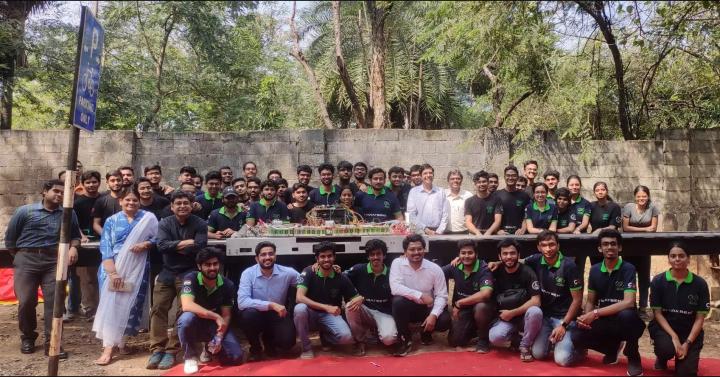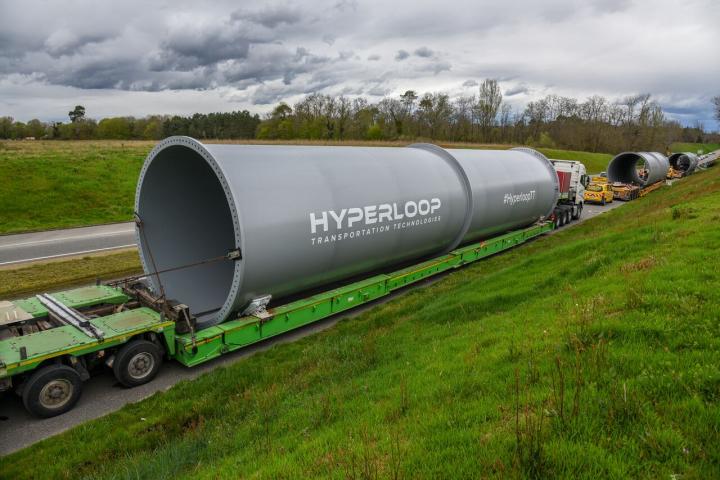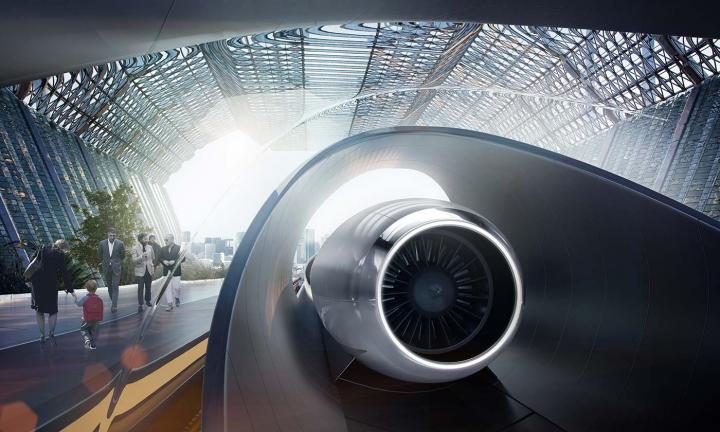News
IIT Madras techies develop indigenous hyperloop
The Avishkar project will be further developed for commercialization with help from TuTr Hyperloop.
Since 2018, engineers from IIT Madras have been working on a hyperloop project called 'Avishkar'. The team have now partnered with a tech startup called TuTr Hyperloop to build India’s first cargo hyperloop system.
The Avishkar project will be further developed for commercialization with help from TuTr Hyperloop. For this purpose, a 400-meter test track with a 2-meter diameter will be constructed at the new Discover Campus at Thaiyur, near Chennai. It will be the largest hyperloop test facility in the world.
In the first phase of its operation, the hyperloop will be carrying cargo. The teams are in talks with authorities to explore opportunities to install the system at the Chennai port and airport. The cargo version is expected to achieve speeds of around 100-250 km/h, while the inter-city passenger version is expected to reach over 600 km/h.
Hyperloop is a high-speed transportation system that uses magnetic propulsion to accelerate pods through a tube. The vacuum inside the tube allows the pods to travel at extremely high speeds thanks to the lower air resistance.
Source: ET Auto
News
Construction of the first full-scale Hyperloop system begins
Hyperloop Transportation Technologies (HTT) has commenced the construction of a full-size passenger and cargo system at their research and development center in Toulouse, France. The first of the passenger capsules will be brought in from Spain in the summer.
The system will consist of 4.0m diameter tubes along with passenger and shipping capsules. In the first phase, a 320m long closed circuit is scheduled to be operational by the end of the year. A longer 1km test track will be built on elevated pylons at a height of 5.8m. This is expected to be completed by 2019.
Hyperloop is currently in its early stages of development. It is a high-speed transportation system that consists of capsules that hover inside an airtight tube with low air pressure. A compressor helps move the air in front of the capsule behind it and the claimed top speed is 1,200 km/h in the tube. The company aims to develop this as a safe and more efficient mode of transportation compared to the existing systems.
Back in September 2017, HTT signed a MoU with the government of Andhra Pradesh to build India's first Hyperloop route. Currently undergoing a 6-month feasibility study, construction is expected to begin after the study as Phase 2 of the project.
News
Virgin Hyperloop One to connect Mumbai and Pune by 2024
Virgin Hyperloop One has signed a framework agreement with the state government of Maharashtra to build a Hyperloop between Mumbai and Pune. The announcement was made by Sir Richard Branson during the Magnetic Maharashtra event. Having completed an initial feasibility study, the company plans to submit a detailed framework on engineering in the next 6 months.
Initially an operational demonstration tack will be built and the route will likely be constructed alongside the Mumbai-Pune Expressway. According to the initial study, the travel time along the 140 km route is expected to be around 14-25 minutes. The first test runs are expected to be conducted in the next 3 years while commercial operations would start in the next 6-7 years.
The Virgin Hyperloop is capable of reaching speeds up to 1,000 km/h, however the latest study has been based on an average speed of 350 km/h, while the infrastructure will be able to handle speeds up to 600-1,000 km/h. Virgin claims that it will be able to move 10,000 passengers per hour (in both directions) along this route. Once fully operational, it will be able to transport 150 million people per year. It is expected that a trip on the Hyperloop would be priced similar to the cab or airplane fares.
It was also revealed that the manufacturing facility for the Hyperloop tubes is likely to come up around Pune. The company plans to make India an export hub for autonomous, electric powered Hyperloop tubes. According to Branson, the project will be privately funded and the company is also in discussion with various other Indian partners.
In September 2017, Hyperloop Transportation Technologies (HTT) and the Andhra Pradesh government signed a Memorandum of Understanding (MOU) to connect Amaravati and Vijaywada with a Hyperloop.
Source: The Economic Times
News
Hyperloop to connect Amaravati and Vijayawada
Hyperloop Transportation Technologies (HTT) has signed a Memorandum of Understanding (MOU) with the government of Andhra Pradesh to build India's first Hyperloop route. The proposed route will connect the cities of Amaravati and Vijayawada - a journey which currently takes more than an hour. According to HTT, with their high-speed transportation system, the journey time will be cut down to just 5 minutes.
The proposed project will use a Public Private Partnership (PPP) model and will receive funding primarily from private investors. In the first phase, HTT will conduct a 6-month feasibility study starting in the month of October. During this time, the best route will be identified by analyzing the surrounding cityscapes. Construction will begin in phase 2 of the project after the feasibility study.
HTT will also work with local stakeholders to build regulatory standards necessary for safe and efficient operation. Moreover, the public-private partnership is expected to generate 2,500 jobs.
Hyperloop is a high-speed transportation system that is currently in its early stages of development. The system consists of a capsule that hovers inside a tube with low air pressure. The remaining air in the front of the capsule is moved back through a compressor. The company claims that this capsule can reach speeds of up to 1,200 km/h in the tube.
- Tags:
- Indian
- Hyperloop
- Public Transport














